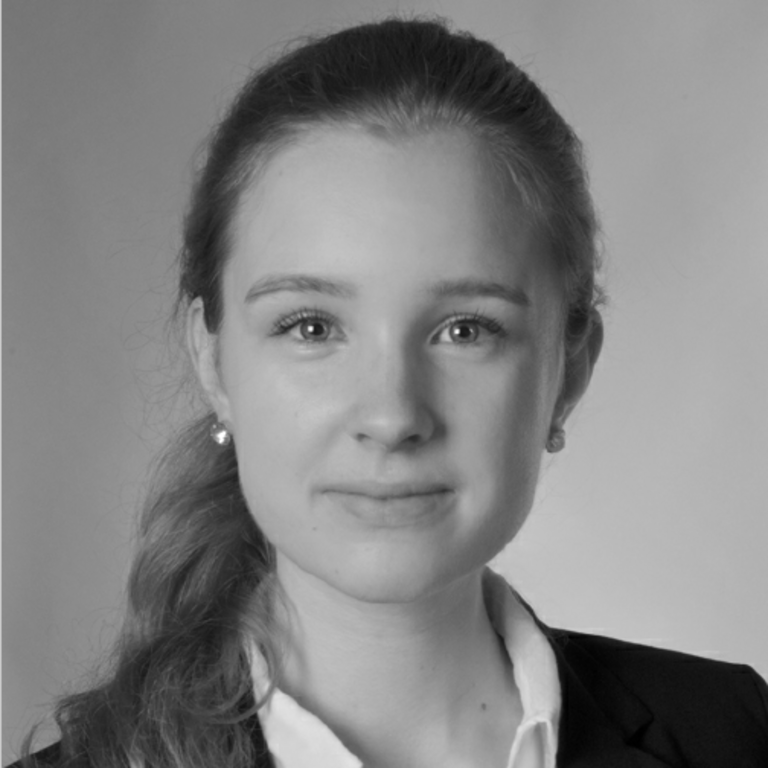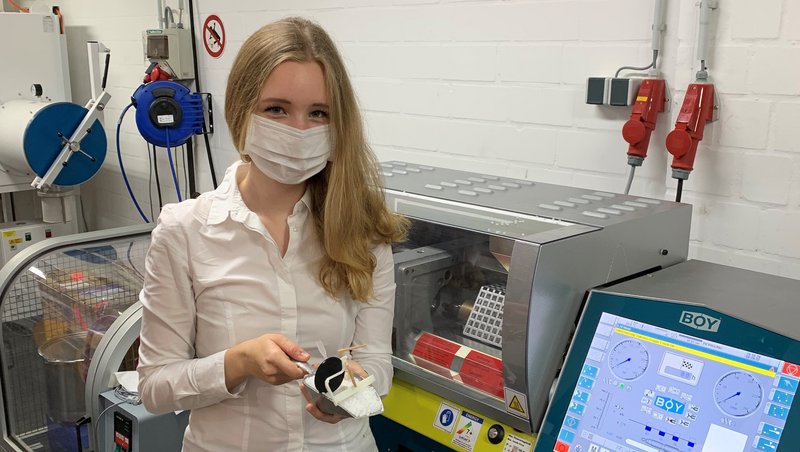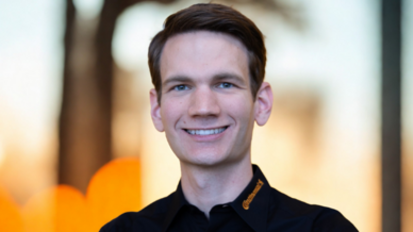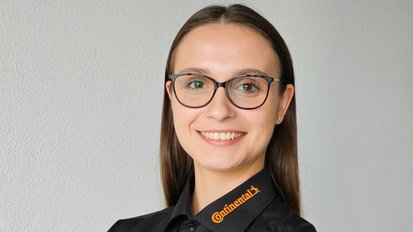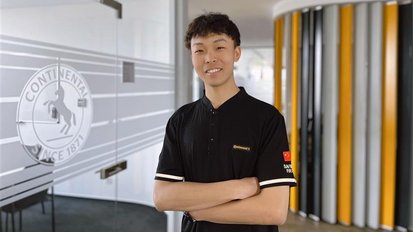Practical application in the R&D department - an untypical assignment
Louisa studies Business Administration in a dual study program. She completed her last practical phase in the department for Research & Development at ContiTech. A somewhat untypical assignment for her field of study, in which both economic and technical aspects play a major role. Read the article to find out if the assignment was worthwhile.
My name is Louisa and I started my studies in Business Administration on 01.09.2018 at Continental. Currently I am supporting the central research & development (short R&D) of ContiTech AG.
The Corona Pandemic changed a lot for me and the dual students of the class of 2018: Cancellation of the planned foreign assignment, (contact) restrictions, uncertainty, redistribution of assignments, working completely from home for the first time.
Instead of the foreign assignment in Controlling, I transferred to the central R&D department at ContiTech in June. At first, I was not sure whether I could support with little more than school-level knowledge – as R&D is a rather untypical field of application for my degree course. However, I was eager to learn more about the way R&D works and to be able to integrate it into my own way of working.
The initial insecurity of working from home quickly disappeared. I could support Advanced Technology Development (the central R&D department) in developing an innovation strategy.
In general, this department deals with the question of which technologies will be elementary for ContiTech in 5-10 years' time and works on innovations and developments in these fields, free from day-to-day business. A topic-related innovation strategy is then developed for a so-called technology field, adapted to the direction of the business units as well as external and internal conditions and trends. The result of the strategy is a centralized development portfolio of the characteristics and application fields of this technology that are and/or will be relevant for ContiTech. I had the privilege of providing support in this process.
I spent a large part of my first week reading up on the basic knowledge I needed for my tasks and for understanding the background. If you start like me without lectures and previous knowledge in this field, you need to get used to vulcanization, polymerization and the distinction of many material abbreviations and properties. EPDM? TPU? Technical Readiness? Creep of the material? In meetings, some of these abbreviations and terms come up quickly, and I realized how little I know about the details behind the products.
However, since my focus in the department was more economic than technical, the initial information shock quickly subsided as I was able to tie in with my studies. I am fascinated to see a completely different side of ContiTech and to learn how R&D develops new strategic approaches. My job allowed me to question the strategic-technological viewpoint of the business units in interviews, which enabled me to learn a lot about many interesting projects but also about the composition of the business units' products.
Even before the assignment, I found reports and articles on strategic topics exciting. That's why it's great to see how we deal with megatrends such as e-mobility, sustainability or sharing economy at ContiTech and how we operationalize them in product development.
I also took home with me how complex buzzwords like "sustainability" can be. What is quite simply planned on paper turns out to be an extensive topic. Origin of components, land use, recycling management, composition, air pollution, energy consumption of processing - a multitude of determinants like these are or must be considered.
In addition to the topics, I also had great support during the practical phase. Despite other professional backgrounds I felt very much appreciated and was treated like a fully supportive employee. Due to the different professional background and the high level of helpfulness of my colleagues in this department, I was also able to get technical backgrounds explained in more detail and gain insight into the chemical R&D work.
My involvement in research & development ultimately showed me how R&D and business development are intertwined in the business case and innovation. This gave me an understanding of the complex technical approach behind an innovation strategy.
Should similar project opportunities arise for students of business studies in the future, I would highly recommend the experience of an assignment that is perhaps rather untypical for the degree program.
Best regards,
Louisa
This article was written by our employee.
